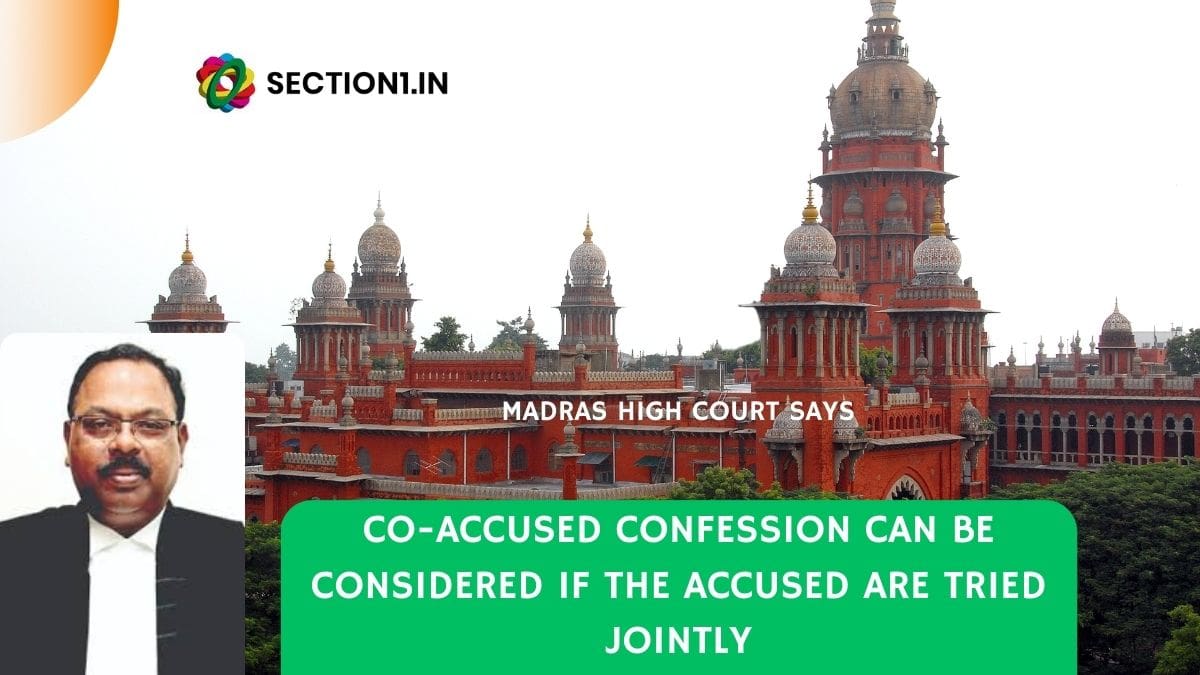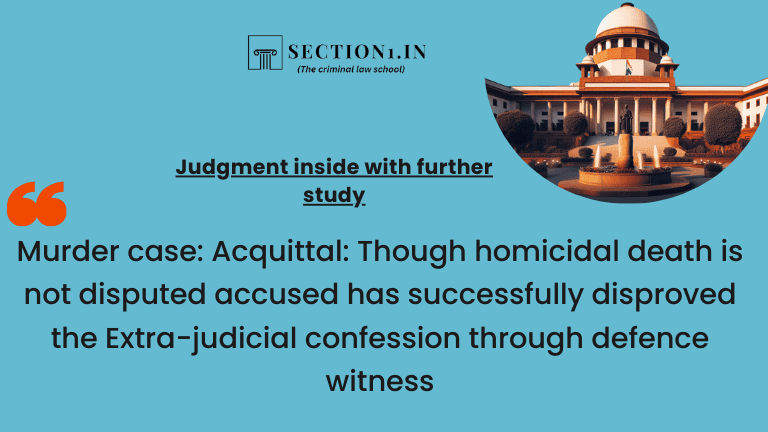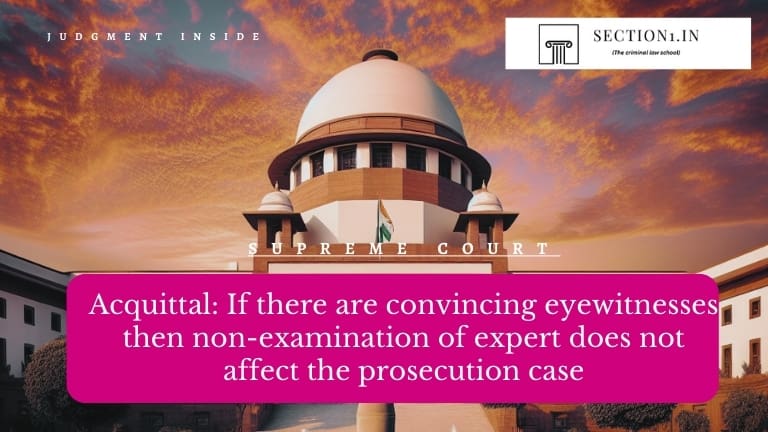Section 30 – Co-accused confession can be considered if the accused are tried jointly
11. As regards the abscondness of the appellant and the juvenile accused, P.W.2 admits the presence of juvenile accused as well as the appellant in their respective house and hence, no adverse inference can be drawn. In this case, FIR/Ex.P10 came to be registered on 02.04.2016 at about 7.15 a.m. and P.W.13/Investigating Officer admits that he on receipt of information visited the scene of occurrence, commenced the investigation at about 8.00 a.m, started collecting evidence and recorded statement of witnesses. P.W.6’s evidence is that the juvenile accused voluntarily appeared before him and gave a confession on 03.04.2016 at about 8.00 a.m and projected as though an extra judicial confession given which is taken as yet another circumstances to convict the appellant. This cannot be so, the said confession not marked as an exhibit/document in this case. Further, investigation already commenced on 02.04.2016, it is admitted that P.W.6/Village Administrative Officer, is a stranger to the juvenile accused and there is no reason for the juvenile accused to place confidence with P.W.6 and to give such confession. Added to it, according to Section 30 of the Evidence Act, the confession of co-accused can be considered if the accused are jointly tried for the same offence. In this case, the appellant was not tried jointly with the juvenile accused. Further, P.W.13 admits that the case against the juvenile accused before the Juvenile Court got abated since he passed away even before commencement of trial. Thus there is no evidence, ocular, circumstantial or otherwise, which could establish the guilt of the accused.
Circumstantial evidence
12. The Hon’ble Apex Court in the case of Prakash vs. State of Karnataka reported in (2014) 12 SCC 133, held as follows:
“51. It is true that the relevant circumstances should not be looked at in a disaggregated manner but collectively. Still, this does not absolve the prosecution from proving each relevant fact. “6.In a case of circumstantial evidence, each circumstance must be proved beyond reasonable doubt by independent evidence and the circumstances so proved, must form a complete chain without giving room to any other hypotheses and should be consistent with only the guilt of the accused.”
Acquittal
14. In this case, there is no chain of evidence so complete with all links intact for a proof beyond doubt conclusion and conviction. Thus, looking at the case from any angle, it is seen that the prosecution had failed to prove that the appellant had committed the offene beyond all reasonable doubt. Accordingly, the Criminal Appeal stands allowed and the appellant is acquitted from all the charges levelled against him.
Party
Murugan vs. State Rep. by the Inspector of Police, Jolarpet Police Station, Vellore District. Crime No.206 of 2016 – Crl.A.No. 111 of 2019 – 12.04.2023 – THE HONOURABLE MR.JUSTICE M.SUNDAR AND THE HONOURABLE MR.JUSTICE M.NIRMAL KUMAR.
https://www.mhc.tn.gov.in/judis/index.php/casestatus/viewpdf/1031862
Further Study
- The Juvenile Justice Care and Protection Of Children Act, 2000 – An Analysis (Having Deep Connection With Juvenile Justice (Care And Protection Of Children) Act, 2015)
- Juvenile: Whether after the trial is over, if accused found to be juvenile the court would set aside the sentence or shall sent to juvenile justice board?
- Juvenile Justice act: Issue of Juvenility can be claimed even before the Hon’ble Supreme court
- Acquittal – circumstantial evidence
- Once tender of pardon is given to a person he becomes a witness for the prosecution and his evidence before the open Court during trial is substantive evidence and not the confession






